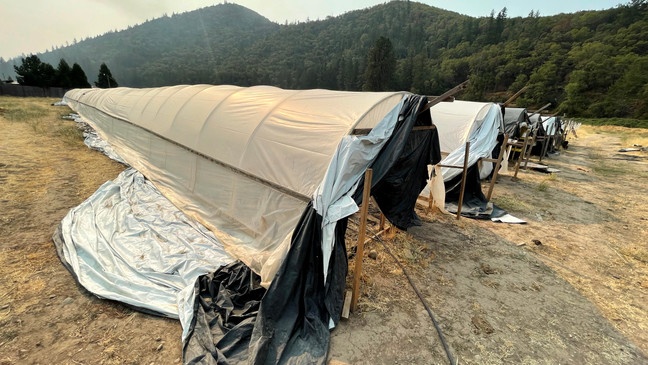An Oregon law expected to be finalized this week will make landowners responsible for environmental devastation brought by illegal cannabis plantations that have operated in the southern part of the state, many behind legal hemp licenses.
With an oversupply of marijuana in Oregon and most other parts of the U.S., many of the illicit operators have departed the state, leaving a mess behind. Perhaps more critically, the operators often tapped illegally into local water supplies, which now are depleted in some areas.
Under the bill, expected to be signed this week by Gov. Tina Kotek, local governments are authorized to file liens against property that was used for illegal cannabis growing if the owners fail to clean it up. The law also prohibits the use of rivers or groundwater at the sites in the future.
Criminal gangs
Oregon started issuing licenses for recreational marijuana growers in 2015 following legalization in 2014. Passage of the 2018 Farm Bill, which legalized hemp growing federally, brought many nefarious operators into Josephine, Jackson and Klamath counties, three adjacent counties that border northern California.
State inspectors last year estimated that more than half of the licensed hemp farms in the area were growing marijuana under the guise of hemp.
Local officials say such operations are often financed by foreign criminal gangs and drug cartels from Mexico, Russia and other countries, many of which employ armed guards, raising fears among local residents, and prompting one lawmaker to describe the grow areas as “military-weapons zones.”
Slave conditions
The gangs offered exorbitant prices for property, labor, and water rights, giving them advantages over legal marijuana growers. In addition to water theft, police uncovered problems with abandoned greenhouses and toilets, improper use of pesticides and other chemicals, plastic waste, garbage and electrical hazards.
The operators also brought in migrant workers, in many cases seizing and holding their identity papers, preventing them from leaving the work sites, where they were found to be living in “conditions approaching slavery,” as then-Gov. Kate Brown described the situation in late 2021. The new law criminalizes the seizure of identity papers or threatening to report migrant workers for deportation.
State officials said early last year that the illegal marijuana operators were expanding operations faster than law agencies could shut them down. With the cost of enforcement ballooning as a result of the rogue growers, state lawmakers passed the Illegal Marijuana Market Enforcement Grant Program in December 2021, providing $25 million in funding.
100 tons of pot
Jackson and Josephine counties declared emergencies and instituted moratoria on hemp licensing early last year, saying their police agencies were simply overwhelmed.
While the illegal grow sites have now become smaller and more dispersed, crackdowns continue. Sheriff’s deputies and other officers last week raided a property at Cave Junction in Josephine County and destroyed about 2,000 cannabis plants and 100 pounds of processed cannabis.
Police say raids in 2022 netted more 100 tons of illegal cannabis across the state.

